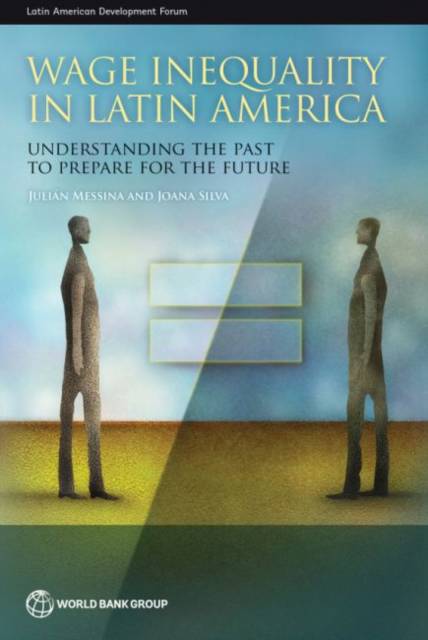
- Retrait gratuit dans votre magasin Club
- 7.000.000 titres dans notre catalogue
- Payer en toute sécurité
- Toujours un magasin près de chez vous
- Retrait gratuit dans votre magasin Club
- 7.000.0000 titres dans notre catalogue
- Payer en toute sécurité
- Toujours un magasin près de chez vous
Wage Inequality in Latin America
Understanding the Past to Prepare for the Future
Julián Messina, Joana Silva
51,95 €
+ 103 points
Description
What caused the decline in wage inequality of the 2000s in Latin America? Looking to the future, will the current economic slowdown be regressive? Wage Inequality in Latin America: Understanding the Past to Prepare for the Future addresses these two questions by reviewing relevant literature and providing new evidence on what we know from the conceptual, empirical, and policy perspectives. The answer to the fi rst question can be broken down into several parts, although the bottom line is that the changes in wage inequality resulted from a combination of three forces: (a) education expansion and its eff ect on falling returns to skill (the supply-side story); (b) shifts in aggregate domestic demand; and (c) exchange rate appreciation from the commodity boom and the associated shift to the nontradable sector that changed interfi rm wage diff erences. Other forces had a non-negligible but secondary role in some countries, while they were not present in others. These include the rapid increase of the minimum wage and a rapid trend toward formalization of employment, which played a supporting role but only during the boom. Understanding the forces behind recent trends also helps to shed light on the second question. The analysis in this volume suggests that the economic slowdown is putting the brakes on the reduction of inequality in Latin America and will likely continue to do so--but it might not actually reverse the region's movement toward less wage inequality.
Spécifications
Parties prenantes
- Auteur(s) :
- Editeur:
Contenu
- Nombre de pages :
- 226
- Langue:
- Anglais
- Collection :
Caractéristiques
- EAN:
- 9781464810398
- Date de parution :
- 03-01-18
- Format:
- Livre broché
- Format numérique:
- Trade paperback (VS)
- Dimensions :
- 152 mm x 226 mm
- Poids :
- 399 g

Les avis
Nous publions uniquement les avis qui respectent les conditions requises. Consultez nos conditions pour les avis.






